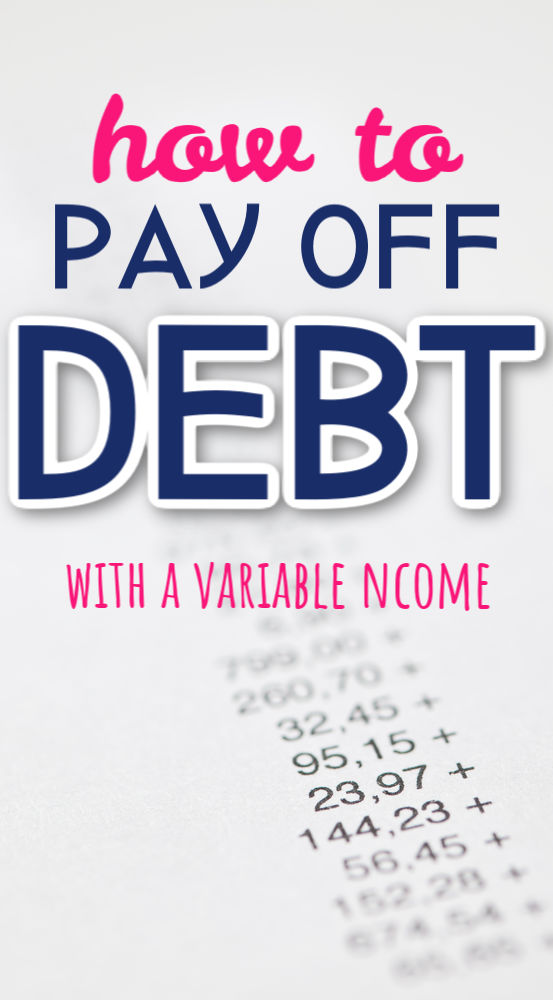
Paying off your debt with a variable income can seem like a challenge that is easier said than done. After all, receiving a consistent income can make the planning process easier.
Luckily, having a 9-5 job isn’t the only way you pay off debt. I paid off a decent chunk of my debt with a variable income and learned how to do things differently.
Whether you freelance, work a sales job or have a job that is based on receiving tips, these strategies can help you pay off debt with a variable income.
Start With a Bare-Bones Budget
The first thing you should do is figure out your baseline. Calculate your basic expenses that you need to live on each month without including any extras.
This is called a bare-bones budget. The expenses on this list are not negotiable and things you have to pay. Think about things like gas, food and electricity, but not Netflix or Comcast.
Setting and implementing a bare-bones budget lets you know the minimum amount you need to earn each month. If you at least earn that amount, you’ll know that your basic expenses are covered and you can budget any additional earnings for flexible expenses and to pay down debt.
For example, if your bare-bones monthly expenses are around $2,200, but you bring home $3,300, you will have $1,100 leftover to play with. This means you can use $500 for flexible expenses and put $600 toward debt.
How much you put toward debt will vary since your income fluctuates, but at minimum, you’ll know that you have enough to meet your basic expenses.
Commit To Putting a % Of Your Income Toward Debt
You can also decide beforehand an appropriate percentage of your income to put directly towards debt.
A general rule is that 30% of your income should be towards your housing. After that 30%, you can be flexible.
If you want to start with 5% to 10% of your income, run the numbers to see if that will work. Obviously, the bigger percentage the quicker you’ll see the debt begin to disappear. Do what you’re comfortable doing at first then gradually contribute more.
What I love about this strategy is that it changes as your income fluctuates. If you commit to putting 10% of your income toward debt each month, that will look different when comparing a high month and a low month. Still, you’re making progress no matter what.
Take Advantage of High Earning Months
On a fluctuating income, some months will be better than others. Unfortunately some months you might barley scrape by and might struggle to pay bills. Luckily, not all months are like that and sometimes an irregular income job can have higher earning months.
Take advantage of these if you can, but also understand and be aware that this can only be temporary and things change the following month. If you feel it’s been a great month and your account reflects that, put a little more towards your debt!
Depending on the increase, you might even be able to double your payment and that will make a huge dent.
Diversify Your Income
If you’re struggling with your bills and paying down debt due to having a variable income, consider diversifying your income. Be open to other streams of income, even if it involves having to learn a new skill.
You may want to use the money from your main job to fund your lifestyle and dedicate all your side income to paying off debt. Having that extra money at your disposal can be a game changer.
Make a Dent in Your Debt
Debt can be hard to get out of if you don’t have the right mindset. It can seem even harder if you have a fluctuating income. Don’t let that discourage you.
Pay down your debt and get back to enjoying life without the headache.




In this periodo pur family business Is closed for covid-19 i am using time planning expenses,savings and gifts for the next months plus I am Aldo working on some side Hustle work and Evert single cent I receive go into savvy card. Tour post Is Rich of tips thanks for sharing